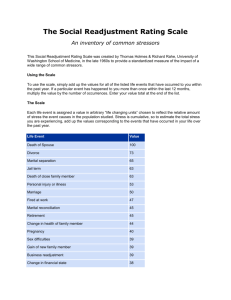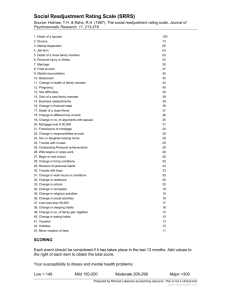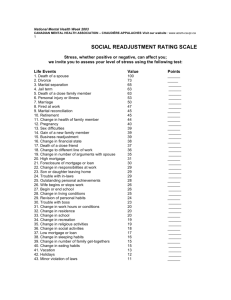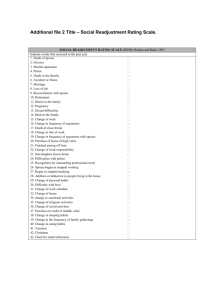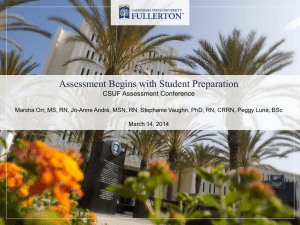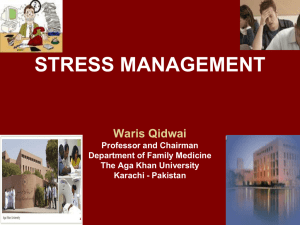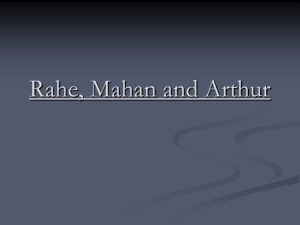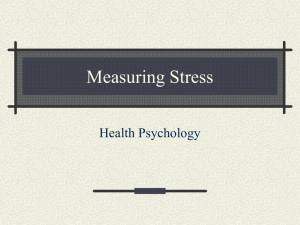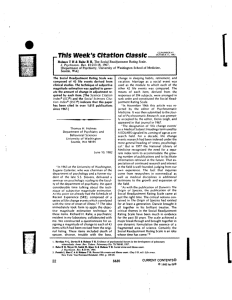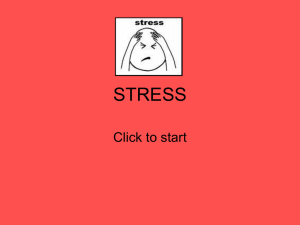The Holmes and Rahe Stress Scale
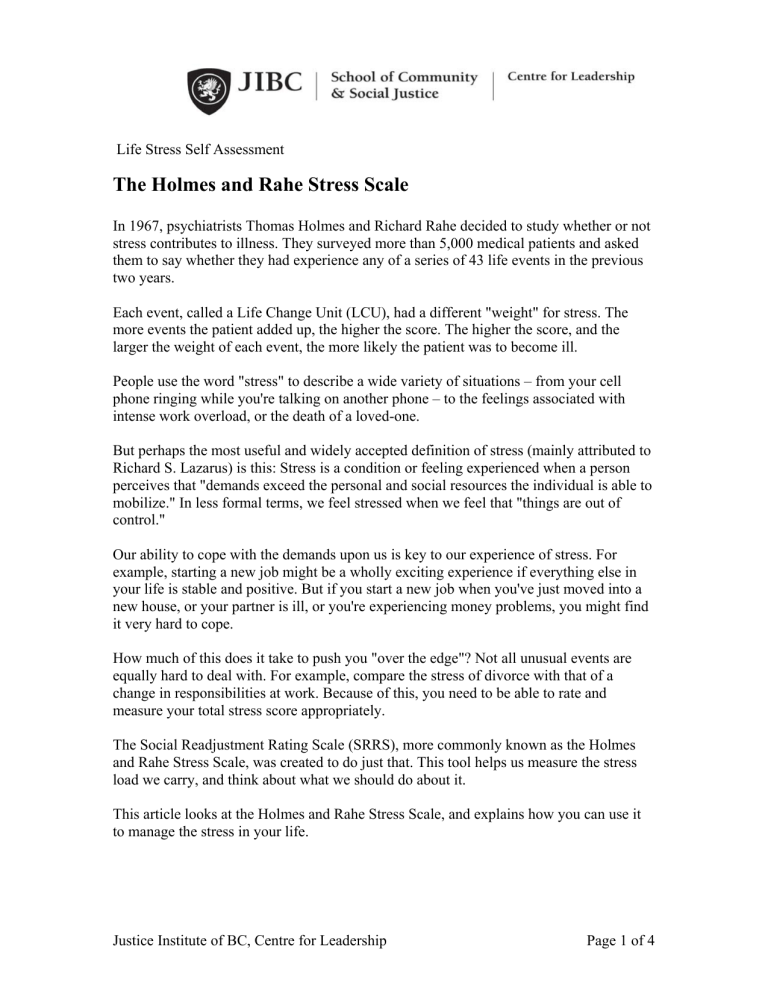
Life Stress Self Assessment
The Holmes and Rahe Stress Scale
In 1967, psychiatrists Thomas Holmes and Richard Rahe decided to study whether or not stress contributes to illness. They surveyed more than 5,000 medical patients and asked them to say whether they had experience any of a series of 43 life events in the previous two years.
Each event, called a Life Change Unit (LCU), had a different "weight" for stress. The more events the patient added up, the higher the score. The higher the score, and the larger the weight of each event, the more likely the patient was to become ill.
People use the word "stress" to describe a wide variety of situations – from your cell phone ringing while you're talking on another phone – to the feelings associated with intense work overload, or the death of a loved-one.
But perhaps the most useful and widely accepted definition of stress (mainly attributed to
Richard S. Lazarus) is this: Stress is a condition or feeling experienced when a person perceives that "demands exceed the personal and social resources the individual is able to mobilize." In less formal terms, we feel stressed when we feel that "things are out of control."
Our ability to cope with the demands upon us is key to our experience of stress. For example, starting a new job might be a wholly exciting experience if everything else in your life is stable and positive. But if you start a new job when you've just moved into a new house, or your partner is ill, or you're experiencing money problems, you might find it very hard to cope.
How much of this does it take to push you "over the edge"? Not all unusual events are equally hard to deal with. For example, compare the stress of divorce with that of a change in responsibilities at work. Because of this, you need to be able to rate and measure your total stress score appropriately.
The Social Readjustment Rating Scale (SRRS), more commonly known as the Holmes and Rahe Stress Scale, was created to do just that. This tool helps us measure the stress load we carry, and think about what we should do about it.
This article looks at the Holmes and Rahe Stress Scale, and explains how you can use it to manage the stress in your life.
Justice Institute of BC, Centre for Leadership Page 1 of 4
Life Stress Self Assessment
The Stress Scale
1
Note all the items that apply to events you have experienced during the last year and add up their LCUs. Then take a look at what you can do about your stress level.
Life Event LCU
1. Death of spouse 100
2. Divorce
3. Marital Separation
4. Jail Term
5. Death of a close family member
6. Personal injury or illness
7. Marriage
8. Being Fired from work
9. Reconciliation with spouse
10. Retirement
11. Change in health of family member
12. Pregnancy
13. Sexual difficulties
14. Addition of family member
15. Major business readjustment
16. Major change in financial state
17. Death of a close friend
39
39
39
38
37
47
45
45
44
40
73
65
63
63
53
50
1
This table is taken from "The Social Readjustment Rating Scale", Thomas H. Holmes and Richard H. Rahe, Journal of Psychosomatic Research , Volume 11, Issue 2, August
1967, Pages 213-218, Copyright © 1967 Published by Elsevier Science Inc. All rights reserved. Permission to reproduce granted by the publisher.
This scale must not be used in any way to cause harm to an individual's professional career.
Justice Institute of BC, Centre for Leadership Page 2 of 4
Life Stress Self Assessment
18. Changing to a different line of work
19. Change in frequency of arguments with spouse
20. Mortgage for loan or major purchase over $ 15,000
21. Foreclosure on a mortgage or loan
22. Major change in responsibilities at work
23. Children leaving home
24. Trouble with in-laws
25. Outstanding personal achievement
26. Spouse begins or stops work
27. Starting or ending school
28. Change in living conditions
29. Revision of personal habits (dress, manners, associations) 24
30. Trouble with boss 23
31. Change in work hours, conditions
32. Change in residence
33. Change in school
20
20
20
34. Change in recreational activities
35. Change in church activities
36. Change in social activities
37. Mortgage or loan under $15,000
19
19
18
17
38. Change in sleeping habits
39. Change in number of family gatherings
40. Change in eating habits
41. Vacation
42. Christmas
43. Minor violation of the law
16
15
15
13
12
11
29
29
28
26
26
25
36
35
31
30
29
Justice Institute of BC, Centre for Leadership Page 3 of 4
Life Stress Self Assessment
If your total is 0-150:
Congratulations! At the moment, your stress level is low. Your chance of illness or accident related to your stress within two years is low. Any change can lead to stress, even enjoyable activities, such as vacations or new forms of recreation. Want to see what to do to keep your stress low? Learn about methods for dealing with stress.
If your total is 150-300:
Take care of yourself now. You have borderline high stress. Your chance of accident or illness related to your stress within two years is moderate. Recommendation: To reduce your stress, try some of these methods.
If your total is over 300:
Warning: You have a high stress level. Your chance of accident or illness related to your stress during the next two years is great. Stress intervention techniques are strongly urged. Click here to learn more about stress.
2
2
Discovery Health. Online. http://health.howstuffworks.com/wellness/stressmanagement/stress-assessment.htm
Justice Institute of BC, Centre for Leadership Page 4 of 4

